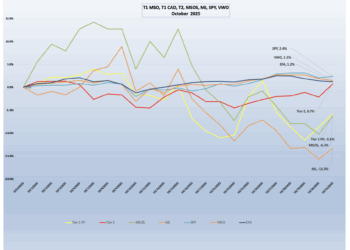A new federal lawsuit against Stiiizy’s hemp-derived products has emerged in Illinois alleging fraud and negligence against the California-based company.
Stiiizy is already enmeshed in a legal dispute in Georgia, which also names Cookies as a defendant, over vape products that allegedly exceed legal THC limits. This latest suit is yet another attack on the legal status of hemp-derived intoxicants.
The 2018 U.S. Farm Act essentially legalized hemp-derived products as long as they contained no more than 0.3% of delta-9 THC by dry weight. Whether or not this includes other hemp-derived THC derivatives remains a legal gray area. This has allowed a flourishing industry of hemp-derived cannabinoid (HDC) products that can be sold across state lines, especially in markets where adult-use cannabis is not legal.
Many of those products contain large amounts of THCa, which slowly converts to delta-9 after the product is tested or when heat is applied, like a lighter at the end of a joint.
Federal study says 90% of hemp products too high in THC
Often, legal arguments hinge on definitions such as “total THC” and “active THC” as attorneys, government officials and manufacturers try to interpret federal and state laws.
The National Institute of Standards and Technology released a study in March 2024 that found about 90% of 53 smokable hemp products from five unidentified commercial sources contained total delta-9 THC in excess of the 0.3% limit. It noted that determining THCa in cannabis is important because it is often the primary form of delta-9 THC in cannabis samples.
“Mass fractions determined by NIST were compared with manufacturer’s online documentation for 22 samples. Measurements differed by ≈ 55% for total Δ9-THC, ≈ 68% for THCA, and ≈ 18% for Δ9-THC,” the report said. “Poor agreement may result from method difference, sample inhomogeneity, batch to batch variability, changes due to storage conditions, and/or product labels or online documentation that are not representative of actual products.”
They added that, “NIST values were generally higher for Δ9-THC and lower for THCA indicating decarboxylation of THCA and conversion to Δ9-THC with aging.”
Researchers also tested delta-8 THC to study potential measurement challenges. In some samples, they found the amount of delta-8 THC was actually lower than what was stated on the packaging.
NIST spokesperson Lawrence Goodman declined to comment on Stiiizy’s current lawsuits.
“NIST is a non-regulatory agency that specializes in measurement science,” he said. “We don’t have any information or insights into lawsuits involving companies that sell cannabis products.”
Two Taylors allege Stiiizy’s delta-8 vapes are illegal
Taylor Byron from Illinois and Taylor Berry from Missouri sued Stiiizy in the Southern U.S. District Court of Illinois on April 12 for selling vape products that were ostensibly derived from hemp but contained illegal levels of THC under the 2018 Farm Bill.
Byron and Berry are represented by the Bruning Law Firm. Managing Partner Jon Bruning challenged the legitimacy of Colorado’s legal adult-use market before the U.S. Supreme Court in 2014. Bruning, who was then serving as attorney general of Nebraska, sued along with the Oklahoma attorney general.
Stiiizy sells a variety of cannabis and delta-8 products, vape pens and edibles, through stores and online sales throughout the United States, including in Illinois and Missouri. The lawsuit alleges that Stiiizy’s delta-8 products contain more than 0.3% active THC, which they claim violates federal, Illinois and Missouri law to qualify as legal hemp products.
“Stiiizy intentionally misrepresents to consumers that its D8 Products contain less than 0.3% of active THC via product labels, packaging, and advertisements,” said the complaint.
Specifically, the lawsuit cites a vape product that tested at 3.57% delta-9 THC.
“The labels, packages, advertisements, active ingredient information, and lab results provided to consumers by Stiiizy are false, misleading, and do not accurately reflect the amount of active THC in Stiiizy’s D8 Products. Stiiizy D8 Products contain enough active THC that they qualify as cannabis under the 2018 Farm Bill, federal CSA, IL CRTA, Missouri Constitution, USDA regulations, and state enforcement agency regulations,” the suit said.
Byron and Berry also allege that Stiiizy deliberately sells illegal products as lawful delta-8 products to benefit from the lack of regulatory oversight, compared to most legal state-level cannabis markets.
“Stiiizy profits from falsely, deceptively, and unlawfully packaging, labeling, and advertising its D8 Products because it saves the burden and expense of complying with the far more extensive regulations and requirements placed upon cannabis products as opposed to Delta 8 products,” said the lawsuit. “Absent Stiiizy’s misrepresentations and omissions regarding the level of active THC of its D8 Products, consumers would not purchase the D8 Products.”
The plaintiffs are seeking class action status and unspecified damages. The attorneys did not respond to requests for comment.
Georgia suit alleges RICO violations
This is the second federal lawsuit filed in recent months against Stiiizy alleging it knowingly sells hemp-derived intoxicants that exceed the federally legal THC limits.
In Hannah Ledbetter et. al. v. Cloud 9 Online Smoke & Vape LLC et. al., a Georgia resident, with the help of an attorney who was involved in other lawsuits concerning alleged lab testing fraud, is suing Cookies, Stiiizy and an assortment of vape shops and testing labs for allegedly scheming to sell federally illegal cannabis products as legal hemp-derived intoxicants. The defendants currently have until May 28 to file their response to the initial complaint.
The lawsuit, which claims RICO violations, was filed on behalf of Helen Ledbetter by attorney Luther Sutter. Sutter is an Arkansas-based lawyer who previously represented plaintiffs in his home state that twice sued testing company Steep Hill over alleged THC inflation in its testing lab in Arkansas. The most recent lawsuit from Arkansas, Jake Hanna v. Overlook Partners LLC et. al., was settled with undisclosed terms in February.












